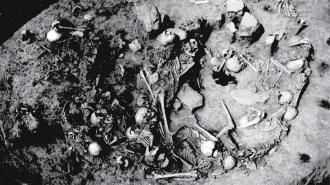Letters from the March 17, 2007, issue of Science News
Disputable thesis
“Counterintuitive Toxicity: Increasingly, scientists are finding that they can’t predict a poison’s low-dose effects” (SN: 1/20/07, p. 40) took a wrong turn into Hormesis Swamp. The hormesis thesis has been thoroughly discredited by all major radiation organizations and professional societies, and its past conferences have been sponsored by tobacco companies and the U.S. Air Force.
Lynn Howard Ehrle
Plymouth, Mich.
Fat or fit city?
Regarding “Weighing In on City Planning: Could smart urban design keep people fit and trim?” (SN: 1/20/07, p. 43), there are also suspected connections between high-impedance commuting and blood pressure, commuting and unhealthy exposure to air pollution, and commuting and back problems and anxiety. Combined with the effects of auto emissions on global warming, one would think that national debates on sprawl and mass transit are long overdue.
Julia Jorgensen
Houston, Texas
I think there could be some truth to the thesis, but I would urge caution in imposing dictates to change the current situation. Obesity is also growing in European cities without any significant change in settlement patterns. Perhaps a better idea would be to reduce restrictions on commercial and retail development in residential areas. The idealized, mixed-use village of generations past was largely the result of unregulated order.
Eloise Hedbor
South Hero, Vt.
Does it make a difference where you were brought up? If I’m born in a small, country town where everyone knows everyone, the community is safer, there are more open spaces, and children ride bikes or play baseball, I grow up being more active. Then, should I later move to urban sprawl, I may be more inclined to look for ways to continue my active lifestyle. Likewise, if I grow up where there are fewer open spaces and a less safe environment, I simply don’t get used to activity. I use my car to drive everywhere and tend toward being more sedentary.
Cari Corbet-Owen
Napa, Calif.







